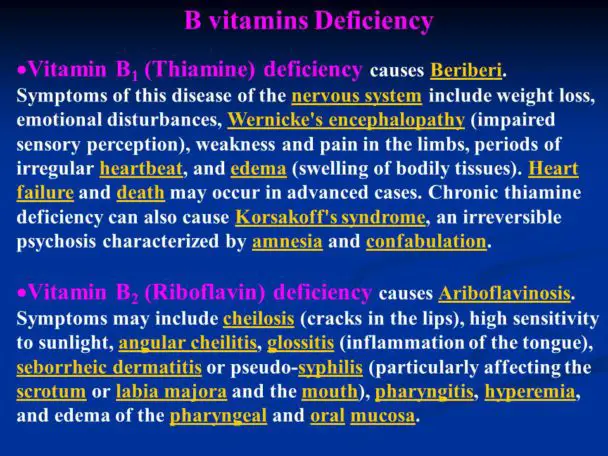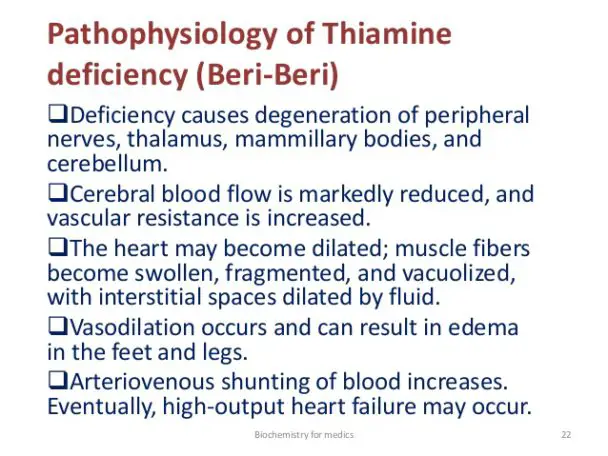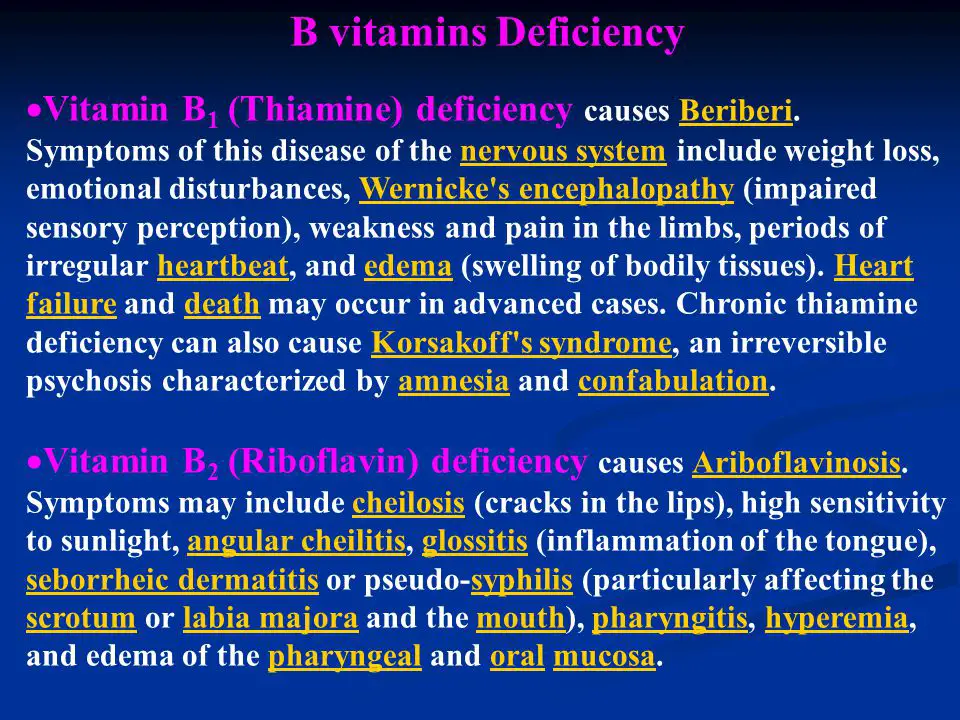Thiamine was discovered in 1926 and was isolated in a lab by Dr. Williams. In this article, we will discuss thiamine for heart failure and the benefits.
Thiamine deficiency has been associated with congestive heart failure. CHF is a serious public health concern. Approximately 6 million people in the United States have heart failure. Actually, the numbers may be higher because there are people who have not been diagnosed.
Thiamine for Heart Failure? What is Thiamine?
Thiamine is one of the water-soluble B vitamins. It is also known as vitamin B1. Thiamine is naturally present in some foods, added to some food products and available as a dietary supplement.
This vitamin plays a critical role in energy metabolism and, therefore, in the growth, development, and function of cells.
Thiamine is a water-soluble vitamin. Therefore, the reserves in the cells are quite low. When a person consumes low thiamine, the reserves are depleted within 2 weeks.
Thiamine Deficiency Causes
Thiamine deficiency was first recognized in Beriberi. Beriberi was widespread in Asian countries because of the consumption of polished rice.
There are two major sources of thiamine: dietary intake and bacterial production.
- Bacteria produce a small amount of thiamine in the body.
- The majority of thiamine is in foods and fortified foods. See the list below.
- Diuretics is one of the biggest causes of low thiamine because thiamine or B1 is a water-soluble vitamin.
CHF and Cardiomyopathy Statistics
Congestive heart failure (CHF) is a serious public health concern. Approximately 6 million people in America have congestive heart failure m or CHF. More than 500,000 people are diagnosed each year. Although the literature has the prognosis of CHF as 5 years, it is much longer than that. I know several people diagnosed with CHF who have lived over 20 years.
Thiamine and Heart Failure: How the Heart is Affected
Although there have been groundbreaking therapies such as beta-blockers and ace inhibitors, CHF remains a leading cause of morbidity and mortality.
It is estimated that 30-98% of patients with CHF have a thiamine deficiency.
Thiamine has a direct effect on the action of heart muscle cells (improved energy production and thus improved cardiac function). Thiamine acts as a co-enzyme for oxidation-reduction reactions in the body. Thiamine is involved in the oxidative functions of the mitochondria.
Thiamine has been proven to cause cardiac hypertrophy, depressed cardiac contractility, and arrhythmias.

Thiamine and Heart Failure: Absorption and Excretion
Thiamine is absorbed in the ileum and jejunum in the small intestines. Most of the absorption is by active transport.
After thiamine is absorbed, it travels to the liver, and then it enters the red blood cells. Thiamine is not protein-bound, therefore it is easily filtered by the kidneys. This is one of the reasons why taking diuretics can result in a thiamine deficiency.
The irony is that the majority of cardiac treatment regimens involved diuretics. Since thiamine is water-soluble, the kidneys will also excrete excess thiamine. Any factors that increase the flow of urine, will increase the excretion of thiamine.
Thiamine and Heart Failure: Signs and Symptoms of Thiamine Deficiency
Low output cardiac failurePulmonary and peripheral edemaFluid retention
Metabolic acidosis
Lactic acidosis
Palpitations
Sinus Arrhythmia
Low blood pressure and low heart rate

Risk Factors for Thiamine Deficiency
- The number one factor is diuretics
- Eating Disorders
- Gastrointestinal disorders
- Drugs such as penicillin and cephalosporins
- Alcohol abuse
- Cancer
- Trauma and surgery
Thiamine and Heart Disease: Testing
- Serum Thiamine Levels – This lab represents short-term thiamine intake.
- Urinary thiamine levels – This lab level does not represent body thiamine stores.
- Erythrocyte transketolase – This is a very sensitive test.
- Erythrocyte thiamine pyrophosphate analysis – This is the most sensitive test.
Sources of Foods High in Thiamine B1
- Mushrooms
- Lettuce, spinach and green peas
- Cereals, rye, and wheat germ
- Eggplants, sprouts, tomatoes
- Potatoes and kidney beans
Alcohol and Low Thiamine
Drinking excess alcohol can cause havoc on your body. Now I am not saying drinking in moderation is harmful. However, drink,ing excess alcohol can cause problems with the B vitamins especially Thiamine or B1.
According to Dr. Bradley of Nutraceutical Education,
” Dr. Bradley From Nutraceutical Education”], Alcohol flushes vitamin B from your system. We need vitamin B to manufacture red blood cells. A lack of vitamin B often results in anemia. This makes a person feel weak and tired. Vitamin B-12 plays an important role in producing brain chemicals that affect our mood and many other crucial brain functions. Low levels of B -12 and B-6 have been linked to depression. Drinking alcohol regularly for more than two weeks decreases vitamin B12 absorption from the gastrointestinal tract”.
Thiamine deficiency has also been linked to depression and other mental disorders.
Dosages of Thiamine
The RDA for Thiamine is 1.1-1.2 mg/day. This is an excellent brand: NOW Vitamin B-1 (Thiamine) 100 mg,100 Tablets. However, people who are at risk for thiamine deficiency should take 100mg three times a day until the levels have normalized. Alcoholics should take 50mg/day.
Conclusion
Thiamine is one of the B vitamins that are crucial to heart health. Thiamine deficiency can cause heart failure and neuropathy. Thiamine supplements can be helpful in getting your required daily thiamine requirements. Thiamine for heart failure has been shown to be beneficial.
My name is Phyllis Robinson MSN, RN. I have been a Registered Nurse for 27 years in the Cardiac Intensive Care Unit. I am passionate about cardiac care and heart disease. I also want this blog to be an educational tool that people can refer to for traditional and alternative treatment. I will blog on heart disorders such as high blood pressure, congestive heart failure, cardiomyopathy, and high cholesterol.
I received my Nursing degree from Baltimore Community College.
I went on to receive my Masters in Nursing from Walden University
I have worked for almost 30 years in Critical Care with a focus on heart health. I am an advocate of preventive healthcare.

